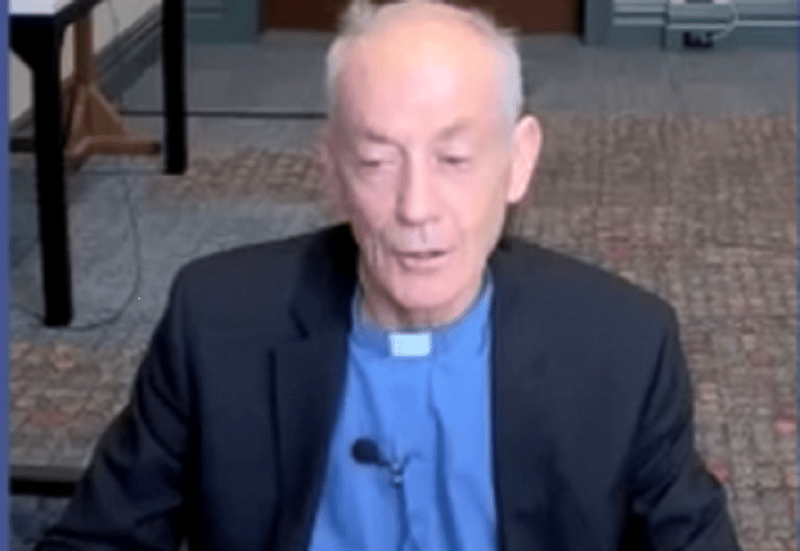New Zealand canon lawyer Msgr Brendan Daly believes the challenge for the Church in Australia and New Zealand is “to work for more accountability and transparency” in its penal processes to ensure its credibility.
At a presentation before the 55th conference of the Canon Law Society of Australia and New Zealand on Zoom on September 8, Msgr Daly discussed the “Best Practices in Penal Processes” in the Church. The theme of the conference was drawn from the release of the revised Book VI of the Code of Canon Law last year, and the on-going Royal Commission Inquiry into Abuse in Care in both State and Faith-Based Institutions in New Zealand.
“The Church needs to ensure that justice is done and seen to be done; that victims’ rights are respected, and victims are enabled to participate fully in penal processes and the award of damages. The Church will lack credibility until this happens,” he said.
Msgr Daly, judicial vicar of the Tribunal of the Catholic Church for New Zealand, stressed at the beginning of his presentation that those involved in any canonical processes should be trained in canon law. He later delved into specific areas of the penal processes and explained where things could be done better.
“There is a disappointing ignorance about Church teaching today, but there is even more ignorance concerning canon law,” he observed.
He noted that this ignorance extends from bishops to safeguarding officers, clergy, parish and diocesan employees.
“No-one should be investigating canonical crimes without knowing exactly what they are. Before commencing an interview with a complainant/victim or the accused, investigators should know what is likely to happen in any ensuing penal process,” he said.
On the other side of these processes are the victims.
Towards the end of his presentation, Msgr Daly said that he was asked this year if bishops would pay for canonical advocates for victims, as most bishops in Australia and New Zealand do not provide this.
While he did not say how he replied to this during the presentation, he said, “it is obvious that there is no equality in Church processes if the accused has the advantage of canonical advocacy while the complainant/victim does not”.
“Victims need to have the canonical processes explained to them. Victims also need to be helped if awards of damages are being decided at the end of the preliminary process,” he said.
He added that, if there is a separate canonical process for compensation for harm, the victim should have a canonical representative.
“Both civil and Church processes in Australia and New Zealand do not give sufficient protection to victims’ rights and involvement in processes,” he pointed out.
Msgr Daly also suggested putting more effort into the professional development of clergy and religious.
He said that, around the world, police forces didn’t use to bother with minor crimes such as graffiti and vandalism. But it has been shown recently that, if minor crimes are investigated and prosecuted, “a culture of non-tolerance for crime is established”.
He said that both Australia and New Zealand have documents concerning “Integrity in Ministry”, but these documents lack teeth when it comes to professional misconduct.
“We have the saying ‘look after the pennies and the pounds will look after themselves’ in English. This saying is applicable to clergy misconduct. There needs to be much more attention and effort put into the professional development of clergy and religious,” he said.
Page Break

Reader Interactions